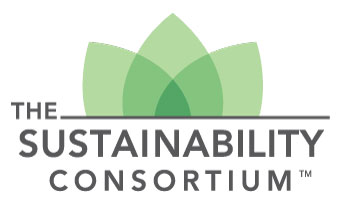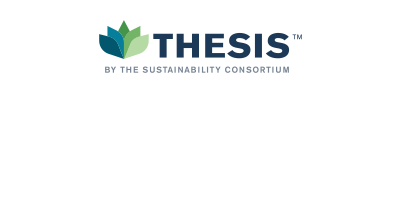THESIS: TSC’s Newest Way to Track Retail Suppliers’ Sustainability Performance
News from Sustainable Brands

Heads up to retailers and suppliers: The Sustainability Consortium has moved its measurement and reporting system over to a new platform. What does this mean for retailers, and their suppliers? And will it offer more assurance to consumers?
Known to many as the Walmart Sustainability Index, this is the system used by Walmart and a number of other retailers to measure the sustainability progress of all their suppliers. Target, Amazon, Sam’s Club, Walgreens and Kroger are just a few of the other retailers using the system, which tracks the sustainability performance of products across over 100 consumer goods categories.
The system has been used by retailers and suppliers for nearly a decade and uses key performance indicators that are used to build category scorecards, benchmark suppliers and track progress. So, what’s changed, and what does this new platform mean for retailers? What will it mean for their suppliers? And will it offer more assurance to consumers?
We caught up with Euan Murray, CEO of The Sustainability Consortium (TSC), to find out.
What is The Sustainability Index and how does TSC power it through a platform?
Euan Murray: The Sustainability Index launched with Walmart in 2014 and is now known as the THESIS (The Sustainability Insight System) Index.
The THESIS Index helps retailers and suppliers manage the transparency and sustainability of all the products they make and sell. It includes key performance indicators for over 120 different consumer goods categories, which help business decision-makers focus on the issues that matter and the suppliers that matter. The THESIS Index puts sustainability at the heart of procurement conversations, helping companies capture the rewards from improved resource efficiency, lower supply chain risks and new markets for sustainable products. The THESIS Index is powered by SupplyShift.
How is the new platform an improvement over the previous platform?
We’ve migrated the THESIS Index from the Product Stewardship Network, and it is now powered by SupplyShift. As well as the change of platform, we’ve acted on user requests in lots of other ways:
- To reduce survey fatigue, suppliers can easily share their assessment results with multiple corporate customers. To enable this, suppliers themselves select which sustainability assessments best represent their products, rather than have retailers do this for them. We’ve heard from lots of companies that they really value this extra control.
- In real-time, as suppliers complete their assessments, they get new Action Recommendations on how to improve their score. This helps sustainability novices get started on their journey and sustainability experts optimize everything they are doing.
- Retailers and suppliers are also able to access much richer results reporting, with real-time scoring and benchmarking, as well as more sophisticated tools to identify what’s working well and where is the best place to focus next.
- Lastly, companies that already use SupplyShift can reuse their existing log-in details. And we are exploring a range of new partnerships with the other sustainability partners on the SupplyShift platform.
Which retailers will be affected and what does the change mean for them?
In the US alone, TSC is actively working with Walmart, Sam’s Club, Walgreens, Kroger and Sprouts to continually improve supplier sustainability performance. We have designed the system so that it significantly reduces the time and money it takes for retailers to engage with their suppliers. Suppliers themselves now select which sustainability assessments best represent their products, rather than have retailers do this for them. This was a consistent request from suppliers; but it reduces the time and effort for retailers to implement, as well. Improvements like this mean the switch to SupplyShift is a win-win for both retailers and suppliers.
What does this mean for transparency and overall impact?
The best way to increase transparency and boost sustainability is to get the right sustainability information into the business conversations between buyers and suppliers. The switch to SupplyShift is about making it easier for retailers and suppliers to get involved, and helping them drive improvements in their own organizations and supply chains. This will help us reach greater scale, paving the way for more sustainable consumer goods, better lives for workers and communities, lower impacts on our planet, and better choices for consumers on the shelves.
What is SupplyShift and what has it introduced to the landscape of sustainability performance metrics?
SupplyShift was founded by two PhDs in Climate Science and Environmental Economics, who saw that companies were spending too much time managing data collection and not enough time driving transformative change in supply chains. That mix of vision and skill-set was exactly what TSC was looking for in a partner.
SupplyShift’s proven technology, novel network architecture, existing partners and expert team made them a great fit for TSC and for the THESIS Index. They’ve been able to seamlessly integrate the THESIS key performance indicators into SupplyShift, creating a fantastic user experience for buyers and suppliers alike.
What value will consumers see?
As more companies use THESIS, we are seeing step-change improvements in the transparency and sustainability of everyday consumer products. This means consumers are able to buy the brands they love, knowing that they have sustainability built in.
With a handful of retailers and brands, we are exploring how to share this information with their consumers, to allow them to make smarter choices and to reward those brands and companies that are taking the lead. We will be sharing more on this soon — watch this space …




